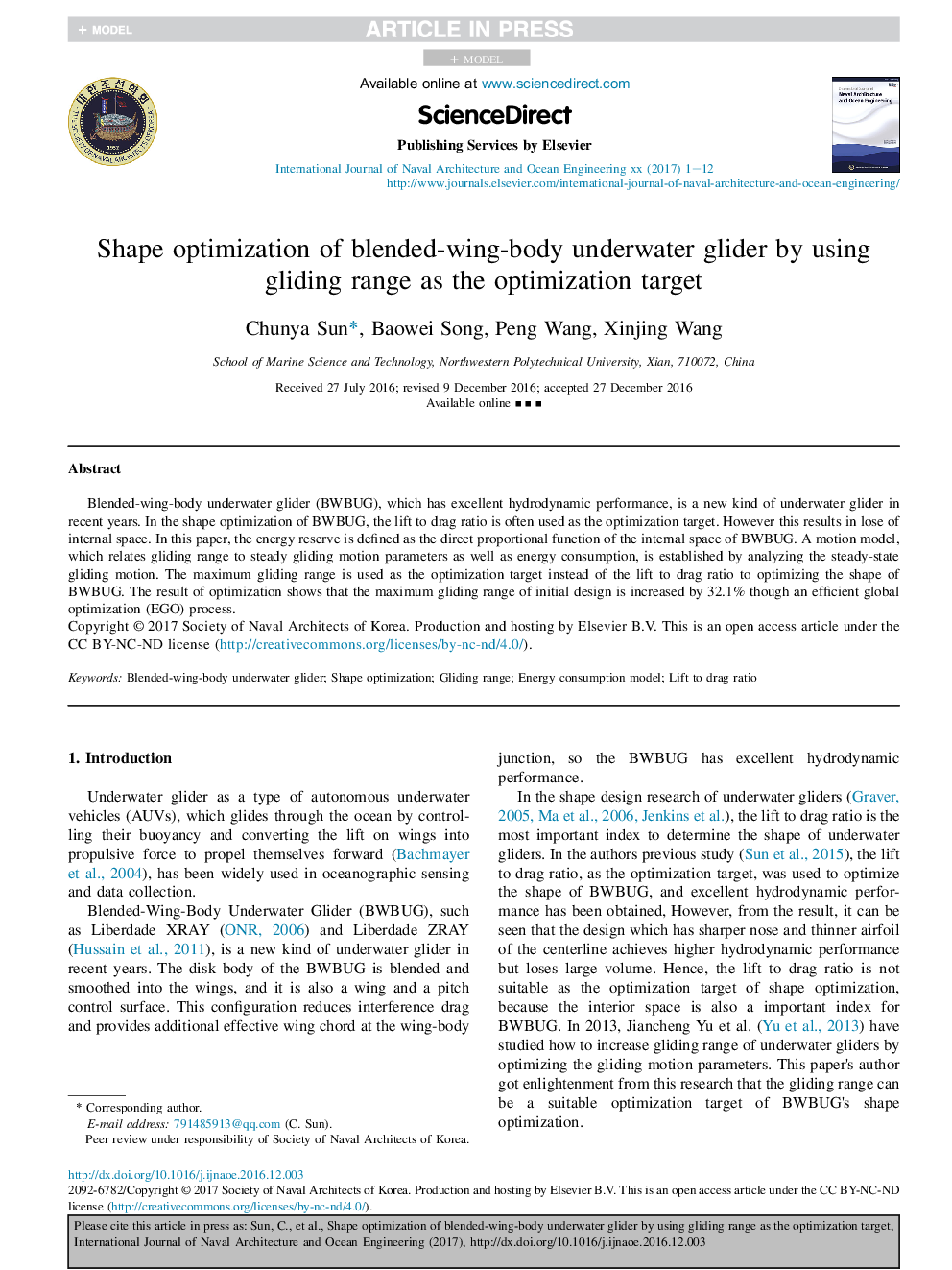| Article ID | Journal | Published Year | Pages | File Type |
|---|---|---|---|---|
| 8864997 | International Journal of Naval Architecture and Ocean Engineering | 2017 | 12 Pages |
Abstract
Blended-Wing-Body Underwater Glider (BWBUG), which has excellent hydrodynamic performance, is a new kind of underwater glider in recent years. In the shape optimization of BWBUG, the lift to drag ratio is often used as the optimization target. However this results in lose of internal space. In this paper, the energy reserve is defined as the direct proportional function of the internal space of BWBUG. A motion model, which relates gliding range to steady gliding motion parameters as well as energy consumption, is established by analyzing the steady-state gliding motion. The maximum gliding range is used as the optimization target instead of the lift to drag ratio to optimizing the shape of BWBUG. The result of optimization shows that the maximum gliding range of initial design is increased by 32.1% though an Efficient Global Optimization (EGO) process.
Related Topics
Physical Sciences and Engineering
Earth and Planetary Sciences
Oceanography
Authors
Chunya Sun, Baowei Song, Peng Wang, Xinjing Wang,
